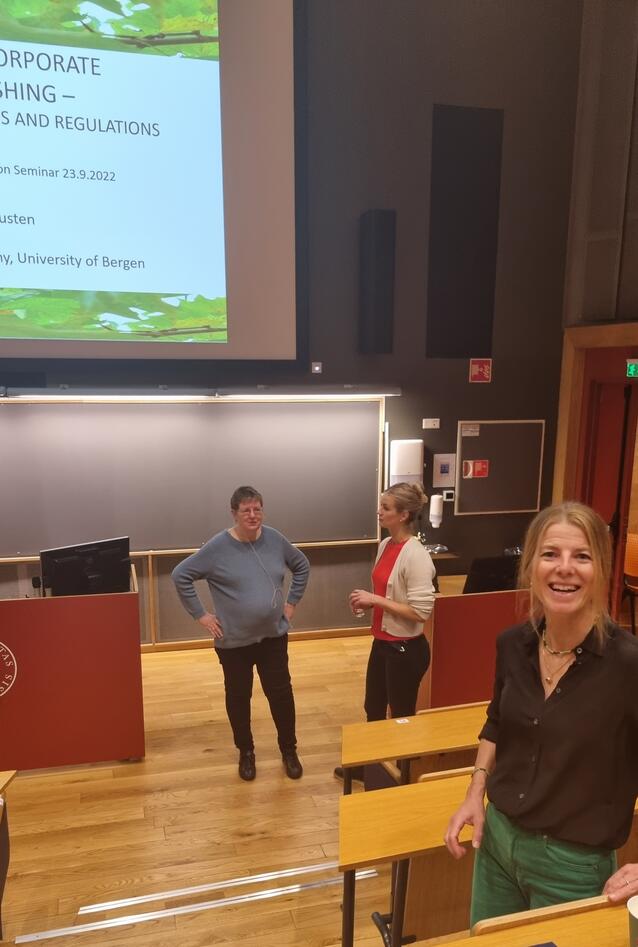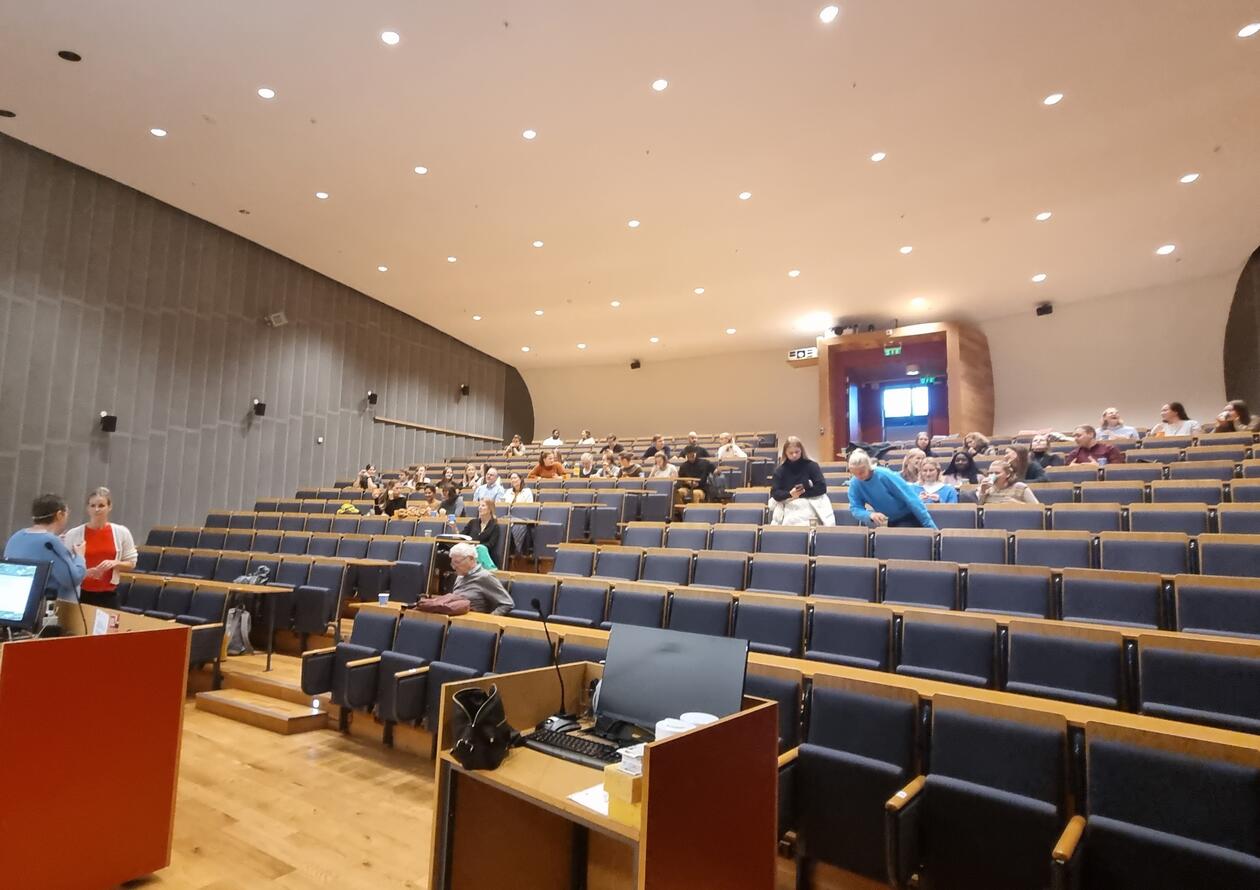Greenwashing and life-cycle assessment (LCA) - what does it mean?
Today UiB's strategic area Climate and energy transition invited to a breakfast seminar on greenwashing and life-cycle assessment (LCA) and many students turned up in "Egget" to hear what Professor Grete Rusten and Postdoc Camilla Løhre had to say.

Hovedinnhold
At today's breakfast seminar we learned more about greenwashing and life-cycle assessment (LCA), how they are connected and what they could mean to the society and businesses in the future.
Professor Grete Rusten, Department of geography at UiB talked about ‘The act of corporate greenwashing - strategies, allegations, and regulations’.
For many companies, a green economy is translated into a business opportunity or just being an image that sells. For others it is merely a way of paying back to society. The problem is that a corporate may exaggerate a favourable environmental performance and not fully disclose the negative and even positive aspects of environmental performance. It can also be an inconsistency between a company’s intention of promoting itself as green, and how this message is perceived by others. Greenwashing can in some cases be a characteristic that comes from others that are viewing a business performance with a critical eye.
Postdoc, Camilla Løhre, Department of Chemistry at UiB gave an introduction to the holistic approach of life cycle assessment (LCA) guidelines and principles.
“We need to keep in mind that sustainability is the property of a system”, said Løhre. Working towards meeting the UN’s sustainable development goals – targeting energy access, climate change and responsible consumption and innovations – life cycle assessment methodology has provided scientific- and industrial environments with invaluable hands-on-tools to evaluate the sustainability prospects of new developments and processes.
“Do you define greenwashing as part of your LCA scope?”, “Can LCA be used as part of a company’s greenwashing strategy?” and “Could a company use an LCA as “proof of due diligence” in a court of law?” were some of the questions asked during today’s seminar.
The answers to the two first questions are yes, it can be, and for the last question it depends on how good a company’s legal representation is.
ESG - Environmental, Social and Governance concerns
Relatively speaking, we are still at an early stage when it comes to thinking about environmental, social and governance concerns (ESG), but the world is changing. We are facing energy and climate crisis and ESGs are becoming important factors to address from a corporate perspective. It is used by financial markets to evaluate a company and determine its future financial performance, and the consumers are starting to ask questions about sustainability, carbon footprint and social aspects with respect to products and services. Ignoring LCA and greenwashing ones products and services are fast becoming an expensive mistake to make.

